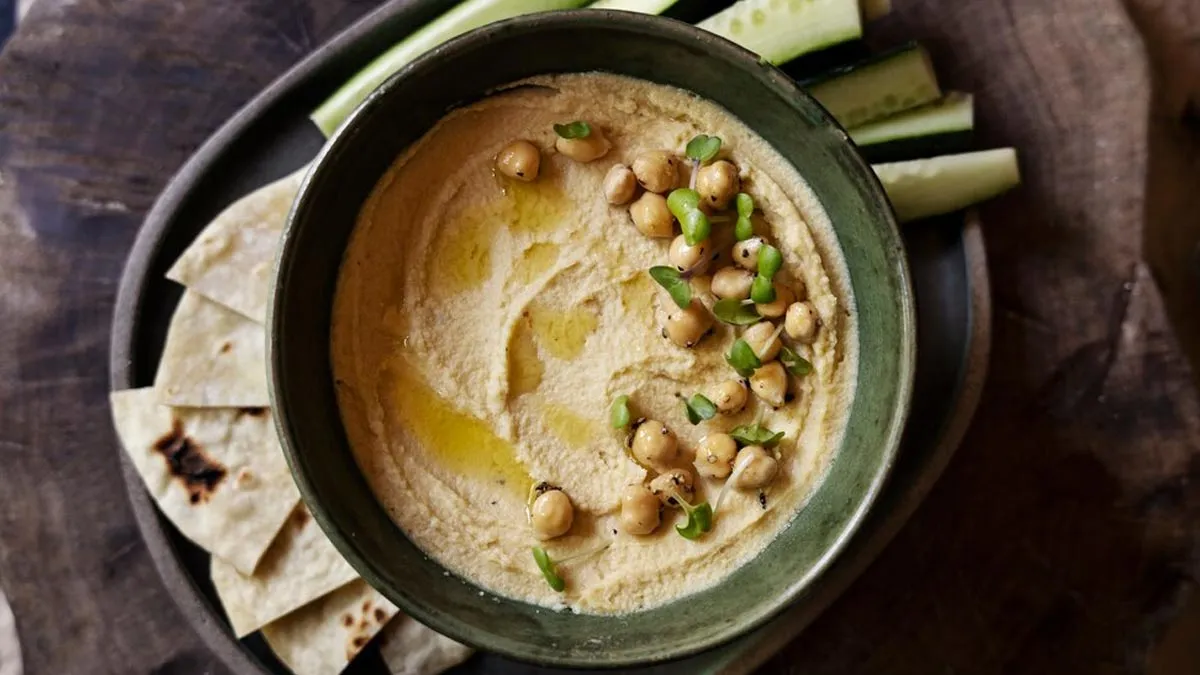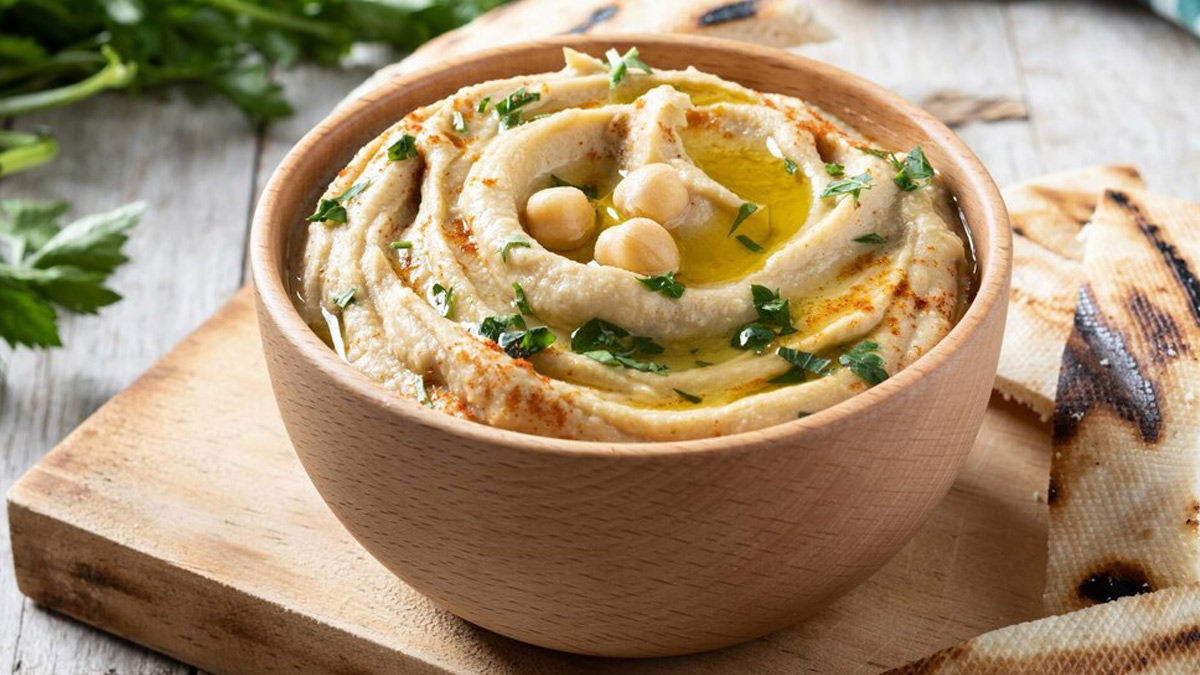
If we're talking about the most underrated food for our health goals and fitness, it has got to be hummus. Hummus is a Middle Eastern dish that is had as a spread or a snack or commonly eaten with pita bread. It is made from chickpeas, tahini, olive oil, garlic, lemon juice, and salt, and is said to have several health benefits, particularly for women in their menopausal stage.
Table of Content:-
Menopause is a natural process that marks the end of a woman's menstrual cycle and indicates that she can no longer get pregnant, at least not naturally. According to the Office on Women's Health, women are said to have reached menopause when they do not have their period for 12 continuous months. While that's a natural part of ageing, the symptoms that come along with it can be distressing. From hot flashes to mood swings to vaginal dryness, there are a wide range of physical challenges women face during this time. Although hummus is not the answer for all, it does help alleviate some of the symptoms and issues. Read to know how.
Also Read: Hummus For Diabetes: Is It Safe?
Health Benefits Of Hummus For Menopausal Women

Helps balance oestrogen levels
During menopause, oestrogen levels drop dramatically, leading to various symptoms. These include:
- Hot flashes
- Sleep problems
- Joint and muscle aches
- Vaginal dryness
- Urinary incontinence
- Mood swings
- Brain fog
- Increased forgetfulness
Hummus can help balance oestrogen levels in the body, as it is made from chickpeas, which are high in phytoestrogens. Phytoestrogens are plant-based compounds that imitate the effects of oestrogen in the body and alleviate symptoms associated with oestrogen deficiency.
High in fibre and good for digestion
Experiencing digestive issues is common during menopause. A decline in oestrogen not only affects reproductive health, but it can also affect gut health. Lack of oestrogen can slow down digestion, causing issues like constipation, diarrhoea, gas, and heartburn. A very old study published in Women & Health found that gastrointestinal (GI) symptoms and Irritable Bowel Syndrome (IBS) were more common in postmenopausal women compared to premenopausal women. In fact, 38% of postmenopausal women reported altered bowel function.
Strengthens bones
The significant decline in oestrogen levels can also impact bone health in menopausal women, increasing the risk of osteoporosis. Osteoporosis is a disease that causes bones to become weak and makes them more likely to break. According to a report by the Endocrine Society, up to 20% of bone loss can occur during menopause, and approximately 1 in 10 women over the age of 60 are affected by osteoporosis worldwide.
While hummus does not directly prevent bone loss or osteoporosis, it contains calcium, iron, protein, and other minerals that help build bones and reduce the risk of bone diseases.
Improves heart health

According to the American Heart Association (AHA), menopause can significantly increase the risk of heart diseases. This is attributed to the low oestrogen levels in the body, which can cause abdominal obesity, high triglycerides, low "good" HDL cholesterol, high blood pressure, and high blood sugar—all of which are risk factors for Cardiovascular Diseases (CVDs).
Hummus can improve heart health, as chickpeas are high in fibre and polyunsaturated fats, which help lower LDL (bad) cholesterol and total cholesterol levels. Additionally, the olive oil used to make hummus contains monounsaturated fats and antioxidants that are good for your heart.
How To Include Hummus In Your Diet

Hummus is a versatile dish that can be paired with several foods. Some of the most interesting ways to have it include:
Veggie dips: You can have it with raw vegetables like carrots, celery, bell peppers, and cucumber or have it with pita bread, a type of flatbread, whole-grain biscuits, or tortilla chips.
Use as a spread: Make sandwiches with hummus instead of mayonnaise. You can also use it as a base for wraps to top it on some toasted bread.
Salad topping: Add hummus to salads for extra flavour, protein, and creaminess.
You can also use hummus as a key ingredient in your main course meals. A healthy Buddha bowl can have a base of hummus, or you can create a pasta dish with it. Ensure that you choose high-quality hummus with minimal added sugars and preservatives.
Also watch this video
How we keep this article up to date:
We work with experts and keep a close eye on the latest in health and wellness. Whenever there is a new research or helpful information, we update our articles with accurate and useful advice.
Current Version
